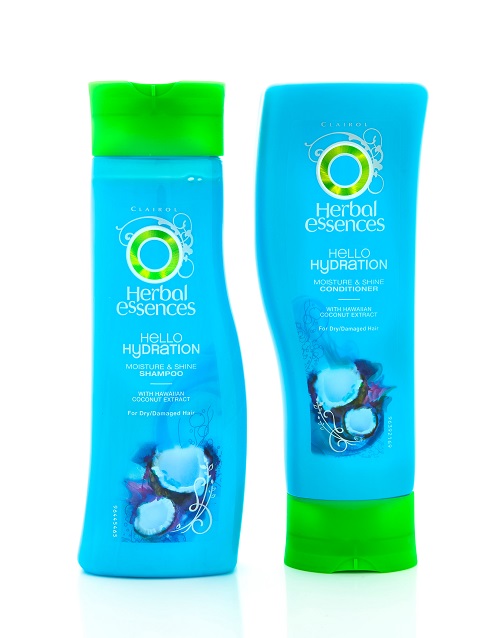Herbal Essences is a brand of hair care and styling products shampoo produced by consumer goods corporation Proctor & Gamble. Herbal Essences emphasizes the use of real botanical products as identified and certified by the Royal Botanical Gardens, Kew.
For the most part, Herbal Essences products are completely vegan. They use all-natural products, and they are even certified to be cruelty-free by PETA. However, Herbal Essences might deter some vegans who stray away from gray area ingredients such as glycerin. Furthermore, there are a few products that contain honey that cannot be considered vegan at all.
This article will discuss the ingredients found in Herbal Essences products and whether or not the products are vegan.
Table of Contents
Herbal Essences Ingredients
Herbal Essences offers an extensive line of hair care products from shampoo, sulfate-free shampoo, conditioner, 2-in-1, dry shampoo, hair oil, hair mask, and styling products.
Herbal Essences uses a variety of ingredients(1) for their hair care products. Since they offer a wide range of products, they utilize a long list of natural products, like those outlined on NHP.
The ingredients listed include argan oil, coconut, aloe, avocado, white grapefruit, honey, jojoba oil, manuka honey, birch bark, mint, jasmine flower, eucalyptus, hemp, bamboo, lavender, mango, cucumber, green tea, white strawberry, passion flowers, arabica coffee fruit, blue ginger, rose essence, charcoal, rice milk, rosemary, tea tree, chamomile, orange blossom, pomegranate, lily of the valley, wild berries, and hibiscus.
Aside from these active ingredients, Herbal Essences also uses other functional ingredients(2) for preservation, stability, fragrances, solvents, surfactants, pH adjustments, and emulsification. These are often synthetic substances.
For example, preservatives used 1,2-hexanediol, ammonium benzoate, benzyl alcohol, caprylyl glycol, DMDM hydantoin, ethylhexylglycerin, methylchlorosiothiazolinone, methylisothiazolinone, methylparaben, phenoxyethanol, propylparaben, sodium benzoate, sodium salicylate, and sorbitan caprylate.
On the other hand, pH adjusters used by Herbal Essences include amino methyl propanol, aminomethyl propanol, citric acid, cyclohexylamine, glycolic acid, lactic acid, potassium hydroxide, sodium citrate, sodium hydroxide, and triisopropanolamine.
Is Herbal Essences Vegan?
Herbal Essences has quite the reputation of being a natural brand, especially since their products are predominantly based on natural plant products. They even categorize their products in collections according to the primary active ingredient. Examples of these collections include the aloe collection, the argan oil collection, the charcoal collection, the rosemary and herbs collection, the tea up collection, and the white grapefruit and mint collection, just to name a few.

One important note to have for Herbal Essences is that they were certified by PETA (People for the Ethical Treatment of Animals) to be cruelty-free(3). Being certified by PETA to be cruelty-free means that their products and their ingredients are not tested on animals. This is quite an achievement for a cosmetic brand since most cosmetic brands subject their products and ingredients to animal testing for safety evaluations. However, being cruelty-free does not automatically make for a vegan company.
Honey
While Herbal Essences products do indeed comprise mostly of plant-based products, there are some products that are clearly not vegan. They do have some products that use honey and Manuka honey.
In their Honey and Vitamin B collection(4), Herbal Essences offer the Honey and Vitamin B Sulfate-Free Shampoo and the Honey and Vitamin B Sulfate-Free Conditioner.
Herbal Essences also offer a Bourbon Manuka Honey collection(5) that includes a Bourbon Manuka + Honey Shampoo and a Bourbon Manuka + Honey Hair Conditioner.
The use of honey in products cannot be considered vegan since honey is an animal product. Honey is a sweet sugar produced by bees to feed themselves and their hive.
Honey production is not only non-vegan due to dietary reasons, but it is also non-vegan due to ethical and environmental reasons. Numerous studies have been made throughout recent years showing that honey production has been detrimental to the environment(6).
For one, honey farms typically employ only one type of bee: the honeybee. When hosting these bees in high numbers in a particular area, these honeybees might disrupt the local ecosystem as they prioritize certain plants. Bees are indeed pollinators, but insect pollinators are usually specific to certain types of plants. For example, bees would go to one type of plant while butterflies might go to another type.
When populations of bees are significantly higher than what the ecosystem intended, the plants pollinated by the bees will have a significant advantage over other plants. This becomes highly problematic when the plants being benefited are invasive.
Another issue with having a large number of honeybees in one area is that they can displace the local populations of bees. Competition is normal in a healthy ecosystem, but farm honeybees often outnumber the local populations, helping promote their decline.
Gray Area Ingredients
Herbal Essences has a list of ingredients that they claim they do not use in their products due to safety reasons. These products include parabens, colorants, mineral oil, phthalates, paraffins, BHA, DEA, toluene, and coal tar ingredients. However, they do not outright denounce the use of animal products.
There are some ingredients that Herbal Essences, as well as most cosmetic brands, uses that are considered gray area ingredients. These are substances that cannot be certainly determined if they are indeed vegan or not because these are substances that can be obtained from both plant and animal sources.
Like other cosmetic brands, Herbal Essences also use some of these ingredients.
For example, Herbal Essences uses glycerin as a solvent for properly dissolving their ingredients. Solvents ensure that ingredients used in a product are mixed properly. Unfortunately, glycerin is considered a gray area ingredient because it can be extracted from both plant and animal sources.
While glycerin and other gray area ingredients are possibly extracted from animal sources, it is typically easier and cheaper for companies to obtain these substances from plant sources. However, the uncertainty can still deter some vegans who would want the assurance.
References
1. https://herbalessences.com/
2. https://herbalessences.com/
3. https://herbalessences.com/
4. https://herbalessences.com/
5. https://herbalessences.com/
7. Featured image credit: ©wolterk/123RF.COM



